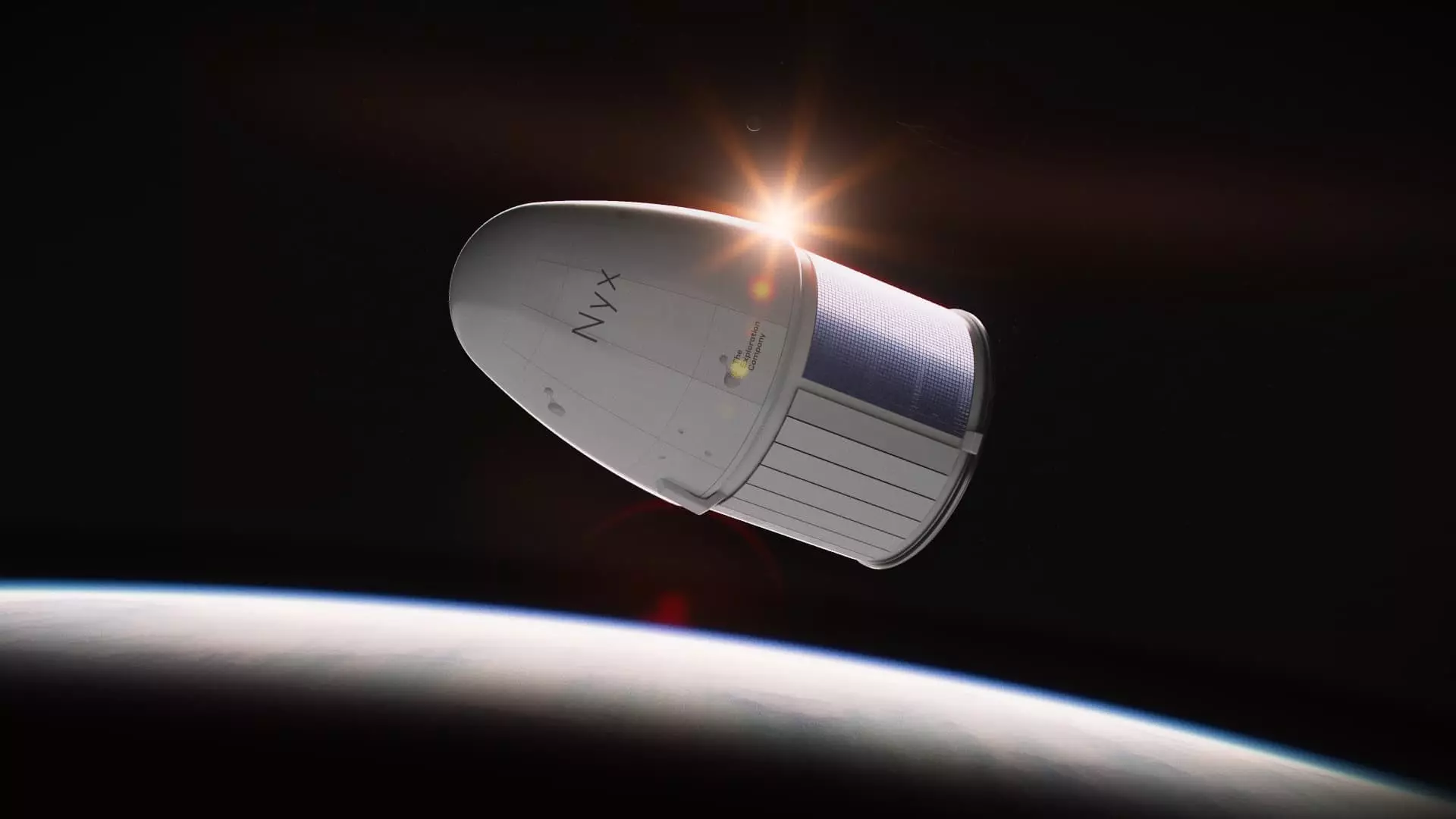As global interest in space exploration surges, companies are emerging with innovative solutions to meet the increasing demand for satellite transport and crewed space missions. The Exploration Company (TEC) stands out in this rapidly evolving landscape, recently announcing a remarkable $160 million funding round aimed at developing its Nyx capsule. This strategic financial infusion appears orchestrated by significant players in the venture capital world, including Balderton Capital and Plural, underscoring the critical need for advanced space transportation capabilities.
The Nyx capsule aims to offer a reusable platform, allowing both astronauts and cargo to be transported to and from space stations. Unlike many competitors, TEC is committed to establishing a European-led solution for space transportation, motivated by a vision to reduce reliance on dominant players in the market like SpaceX, a notable powerhouse with its own Dragon capsule. The space industry is gradually transforming into a hotbed of competition, spurred on by many countries aspiring to stake their claim in the cosmos.
The Rising Demand for Space Missions
Hélène Huby, founder and CEO of TEC, articulated a fundamental shift in the space industry, suggesting that a growing roster of nations is seeking to send both astronauts and cargo into space. Statistics indicate a compound annual growth rate of over 10% in this sector, fueled by ambitions to explore beyond Earth, including moon missions and beyond. The flurry of activity is not limited to private enterprises; national agencies, including NASA and others in China and India, are unveiling their ambitious projects, drawing attention to the need for a more diversified infrastructure for shipping goods and personnel.
Hélène Huby envisions TEC playing a pivotal role in this evolving ecosystem. By focusing on development within Europe, TEC aims not only to meet rising demand but also to position itself as a formidable alternative to existing solutions. It is apparent that as more nations participate in space travel, the flow of cargo into orbit will require a robust multiplier effect—creating the need for more efficient transport mechanisms.
The financial windfall for TEC includes backing from government-sponsored investment bodies like French Tech Souveraineté and Germany’s DeepTech & Climate Fonds. This not only demonstrates confidence in TEC’s ambitious plans but also reflects a strategic effort to align national interests with commercial endeavors in the space sector. The collaboration offers a more equitable platform from which countries in Europe can leap into the competitive international market.
An impressive $800 million in contracts indicates that TEC is not merely conceptualizing its ambitions but rather putting them into action. These contracts involve partnerships with significant players like Starlab and Axiom Space, both of which are also critical stakeholders in the emerging space station arena. It is through such alliances that TEC aims to advance the Nyx capsule’s capabilities while bolstering the European foothold in space exploration and technology.
While the opportunities are abundant, the challenges are equally daunting. TEC is racing against time not just to finalize its capsule design but to ensure it meets rigorous safety and operational standards. Hovering on the horizon is the existence of well-established competitors that pose a significant threat. The urgency to successfully launch the next version of Nyx by the following year followed by a definitive version in 2028 sets the stage for a critical testing phase that will determine TEC’s viability in a market driven by rapid technological advancements.
Huby’s insights reveal an understanding of the broader context in which TEC operates: as space missions escalate around Earth and lunar exploration becomes more imminent, the demand for both crew and cargo transport will escalate sharply. TEC aims not just to facilitate these missions but to innovate the systems required for returning cargo safely back to Earth—a vital service that aligns with the company’s overarching goal of advancing space transportation technologies.
In closing, TEC’s efforts reflect a notable resurgence in European ambitions within the commercial space sector. The company’s trajectory could redefine how new technologies and innovative designs reshape our collective endeavors in exploring the vast expanse of space—bringing the dream of interplanetary exploration closer to reality.


Leave a Reply